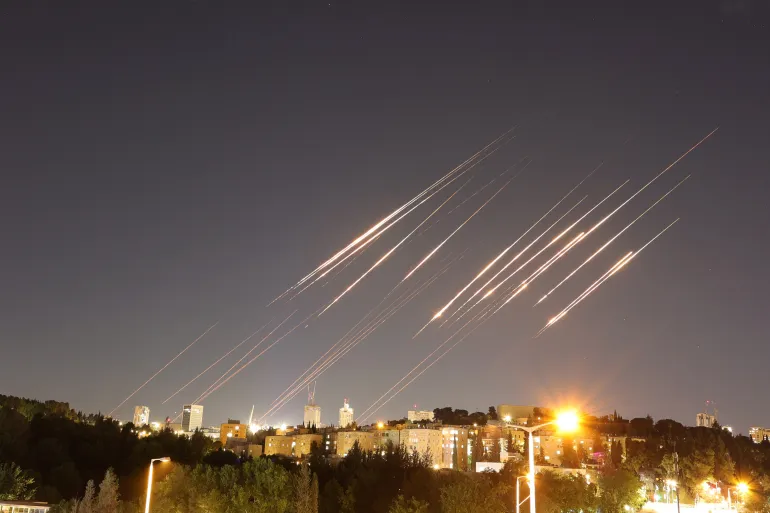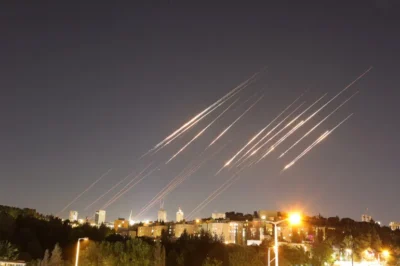
Early Morning Assault
In the early hours of Saturday, June 14, 2025, Iran launched a fresh wave of missile attacks on Israel, intensifying the already volatile situation in the Middle East. Explosions echoed across Jerusalem and Tel Aviv, with sirens blaring as the Israeli military confirmed the ongoing assault. This marked a significant escalation in the conflict, following a series of Israeli airstrikes on Iranian military and nuclear facilities the previous day.
Civilian Impact and Shelter Alerts
The Iranian missile barrage resulted in casualties, with at least three Israelis reported dead and several others injured. Prime Minister Benjamin Netanyahu urged citizens to seek shelter immediately, highlighting the vulnerability of civilians in the face of such attacks. The Home Front Command issued alerts, directing residents to bomb shelters as a precautionary measure. However, disparities in shelter availability across different regions raised concerns about the safety of all citizens.
Israel’s Retaliatory Strikes
In response to the Iranian missile attacks, Israel launched a series of airstrikes targeting key Iranian military and nuclear sites. The strikes reportedly caused significant damage to facilities in Esfahan and Natanz, leading to the deaths of at least 78 individuals, including senior military figures and nuclear scientists. The Israeli government stated that these actions were necessary to prevent Iran from advancing its nuclear capabilities.
Global Reactions and Diplomatic Fallout
The escalation has drawn widespread international concern. Leaders from the United States, United Kingdom, France, China, and Russia have called for restraint and urged both nations to de-escalate the situation. The United Nations has convened emergency sessions to address the crisis. Diplomatic efforts, including scheduled nuclear talks between the U.S. and Iran, have been suspended, with Iran deeming negotiations “meaningless” amid ongoing hostilities.
Economic and Strategic Implications
The conflict has also had economic repercussions. Oil prices surged due to fears of disruptions in the Strait of Hormuz, a critical shipping route for global oil supplies. While OPEC has stated that the escalation does not justify immediate changes to oil supply, the situation remains fluid. Additionally, Iran has hinted at the possibility of closing the Strait, which could have significant implications for global energy markets.
Humanitarian Concerns
Beyond the immediate military actions, the ongoing conflict has exacerbated humanitarian issues in the region. The escalation has diverted attention from other crises, including the humanitarian situation in Gaza. International organizations are expressing concern over the potential for further destabilization and the impact on civilian populations.
Looking Ahead
As the situation continues to develop, the international community remains on edge, monitoring the actions of both Israel and Iran closely. The potential for further escalation looms, and the need for diplomatic intervention has never been more urgent. The coming days will be critical in determining the trajectory of this conflict and its broader implications for regional and global stability.









































Leave a Reply